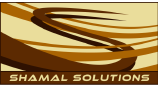Enzychem Lifesciences's investigational new drug application (IND) for chemoradiation induced oral mucositis had been granted by the FDA
FORT LEE, N.J., Aug. 2, 2017 /PRNewswire/ -- The U.S. Food and Drug Administration (FDA) has granted Enzychem Lifesciences, Corp. (KONEX:183490), the largest life sciences company in South Korea's KONEX Stock Exchange, to start its phase 2 study of EC-18, a synthetic palmitoyl-2-linoleoyl-3-acetyl-rac-glycerol (mosedipimod), the investigational new drug application (IND) Enzychem submitted to the Agency, to research its safety and efficacy in managing chemo-radiation induced oral mucositis (CRIOM).
"Mucositis is the painful inflammation and ulceration of the mucous membranes in the mouth and throughout the gastrointestinal track," according to Alexander Fleming, M.D., Chief Technology Officer of Enzychem Lifesciences. "Mucositis is a common adverse effect of cancer chemotherapy and radiotherapy. Occurrence of this condition in particularly the mouth--oral mucositis--is a major challenge for managing the treatment of many forms of cancer. Oral mucositis causes not only severe discomfort, but inability to eat and drink, resulting in weight loss and interruption of treatment."
Approximately 500,000 patients will develop clinically significant mucositis in the United States this year. "Patients being treated with standard radiation or combined chemotherapy and radiation regimens are among the largest at risk population for severe mucositis," Dr. Fleming stated.
In order to investigate the safety and efficacy of EC-18, Enzychem Lifesciences plans to conduct a double-blind, placebo controlled dose escalation phase 2 clinical study in patients with head and neck cancers.
Dr. Stephen Sonis, Professor of Oral Medicine at the Harvard School of Dental Medicine and Senior Surgeon at Brigham and Women's Hospital and the Dana-Farber Cancer Center is serving as a key advisor for this project.
"Concomitant chemo-radiation induced oral mucositis remains a significant unmet medical need. Probably 60 to 70 percent of patients with cancers of the oral cavity, oral pharynx, hypopharynx, and nasopharynx, develop severe mucositis of such severity as to require increased hospitalization, emergency room visits, or breaks in treatment," explained Dr. Sonis. "The mechanism of action of EC-18 supports its use as a potential intervention in mucositis, as well as other radiation-induced injuries such as dermatitis, enteritis and pneumonitis."
Dr. Waun Ki Hong, world renowned medical oncologist of MD Anderson Cancer Center and special advisor of Enzychem Lifesciences, characterized the collected EC-18 preclinical data as "quite exciting and impressive" and further remarked on its potential benefits for head and neck cancer patients during treatment.
"Mucositis induced by chemo- and radiotherapy can be very severe in head and neck cancer patients, so much so that it often compromises optimal and timely treatment. EC-18 has the potential to notably abate the severity of mucositis, and just looking at the preclinical data, I find its result to be promising. I recommend that the drug especially be tested in head and neck cancer patients who are receiving both chemo- and radiotherapy in a placebo-controlled study."
Moreover, available data suggest that EC-18 could have a role in treating immune and inflammatory related diseases, including psoriasis, rheumatoid arthritis, asthma, atopic dermatitis, and sepsis.
Enzychem Lifesciences's intellectual property portfolio comprises of use and process patents, and patent applications that the company believes are necessary for the development and commercialization of EC-18. In aggregate, Enzychem owns over 173 active patents and patent applications with over 89 of the granted patents coming worldwide, especially from the U.S., Europe, and Japan.
Enzychem Lifesciences Chief Executive Officer Ki Young Sohn noted, "Enzychem is investing 30 percent of the company's total annual sales into R&D. Having won the award for best R&D Company at the Korean Venture Business Association in 2017, Enzychem aims to become a leading global biopharmaceutical company through new drug development."
About Enzychem Lifesciences Corporation
Enzychem Lifesciences, Corp. (KONEX:183490) is a global new drug development biopharmaceutical company founded in 1999. With R&D driven approach and corporate mission of "Saving Human Lives by Overcoming Unmet Medical Needs", Enzychem is developing innovative treatments which can address significant unmet medical needs. Enzychem is the largest life sciences company by market capitalization in South Korea'sKONEX Stock Exchange. The company is headquartered in Seoul, South Korea.
For more information on Enzychem Lifesciences, visit http://www.enzychem.com/
This discussion may include predictions, estimates or other information that might be considered forward-looking. While these forward-looking statements represent Enzychem's current judgment on what the future holds, they are subject to risks and uncertainties that could cause actual results to differ materially. You are cautioned not to place undue reliance on these forward-looking statements, which reflect our opinions only as of the date of this announcement. Please keep in mind that Enzychem is not obligating itself to revise or publicly release the results of any revision to these forward-looking statements in light of new information or future events.
The information included in this press release concerns a drug use that has not been approved by the Food and Drug Administration.
View original content:http://www.prnewswire.com/news-releases/enzychem-lifesciencess-investigational-new-drug-application-ind-for-chemoradiation-induced-oral-mucositis-had-been-granted-by-the-fda-300498625.html
SOURCE Enzychem Lifesciences, Corp.





